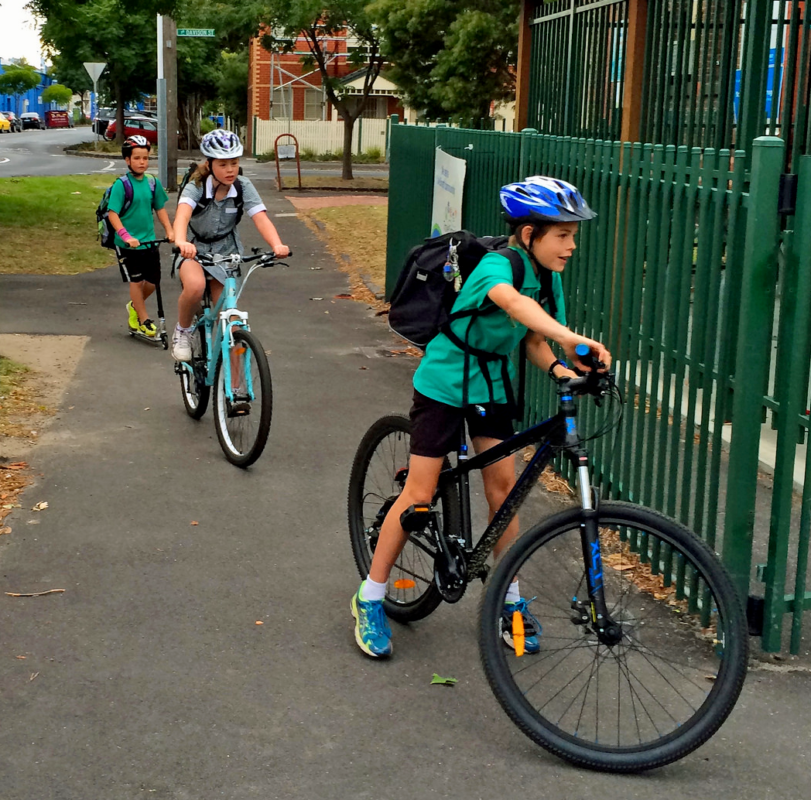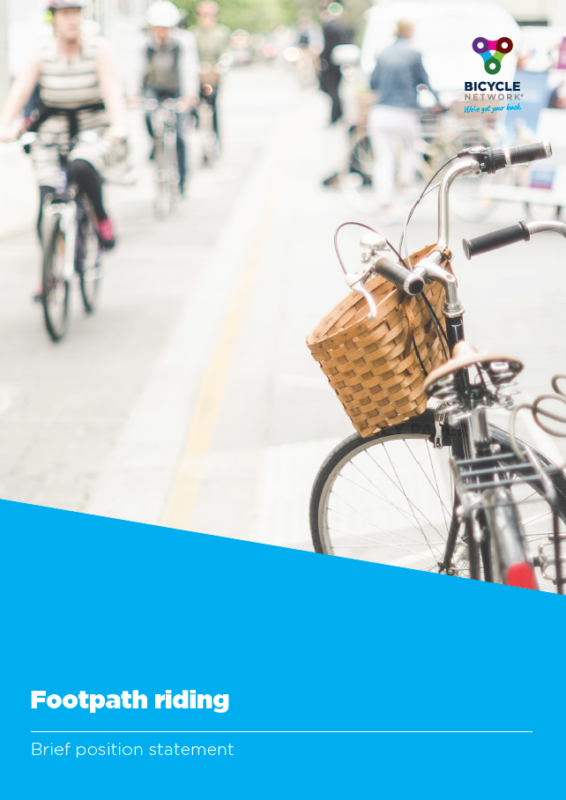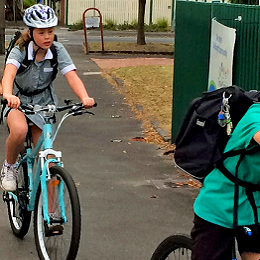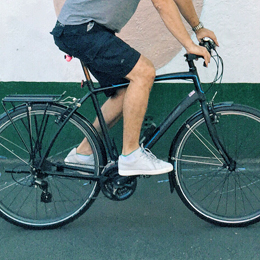Footpath riding regulations in Victoria and New South Wales may be a barrier to riders avoiding unsafe roads. We must accept that the bike networks across our cities are not yet fully connected. Where a bike lane ends, the road space it connects to may not be safe and hospitable for the wider range of people riding bikes. Many of Melbourne’s major roads, for example, have no on-road bike treatments or adjacent off-road thoroughfares within reasonable distance. This means that riders may often need to mix with dense, high-speed traffic as part of their journey. There is an option for younger riders to avoid danger. You are able to ride on the footpath in Victoria, but as soon as you turn 13 you must move to the road. In New South Wales, this happens when riders turn 16. In all other states, the footpath riding rules. In the remaining states, riders of all ages may use the footpath. Whilst we continue to make our roads more bike-friendly into the future, we need to look at the present situation and ensure that riders can safely complete their trips, without compromising the safety of others. Riding on a footpath to avoid dangerous environments is a solution, but the legality is not nationally consistent. Allow people of any age to ride on the footpath in all states of Australia. Currently, our road networks are largely configured for the movement of cars. In the absence of well-connected and separated bike networks that protect people from high risk road spaces, footpaths may offer a safe alternative to busy high-speed roads, particularly for inexperienced riders. However, we don’t want to be simply shifting the risks. We must also find solutions that are compatible with people walking on paths, particularly older adults. Not all footpaths will be appropriate for bike use, and a wholesale easing of regulations may not be entirely appropriate. The best solution is to target areas where riding are simply too dangerous, particularly state roads with a high posted speed limit, high traffic density and no existing bike infrastructure. In these cases, the on-road crash risk is likely to significantly outweigh the off-road crash risk. We are unlikely to see a surge in bikes on footpaths if the rules were to change. Most existing riders prefer a designated bike path, and only a small proportion of people, particularly those with no bike experience, will take advantage. The aim is to provide a safe option to unsafe settings. Many factors that must be considered for developing the best policy on footpath riding, from safety risks to expected mode share. Bicycle Network’s position statement on footpath riding in Victoria and New South Wales was developed by exploring several important questions:
Children up until the age of 16 can now legally ride a bike on the footpath in NSW.
Pressure to increase the age of footpath riding continues in NSW thanks to help from Independent Member for Sydney Alex Greenwich.
Bicycle Network is interested in which types of environments you feel confident riding your bike.
Together we can raise the age of footpath riding in Victoria and NSW.
Call and write to decision makers. Minister for Roads and Road Safety – ben.carroll@parliament.vic.gov.au Minister for Transport and Infrastructure, Andrew Constance
Share our campaign and show your wish for urgent action. #TogetherWeCan Become a member today and together we can make it easier for more people to ride.The problem

The solution
How it would work
Read our position statement

In the news:

Footpath riding law change in NSW

Footpath riding pressure mounts
Where do you ride your bike?
Take action
Make contact
The Hon Ben Carroll MPShare on social
Become a member
Everyone has their own reasons for riding a bike. Similarly, we each have our own preferences for where we ride, be it on the road, on the footpath or on shared paths.
Please take a moment to complete this brief survey to help us better understand your preferences, and to better support the way you ride.
Victoria
New South Wales

